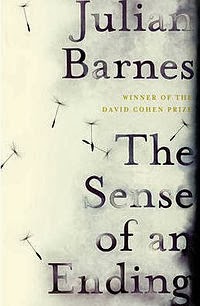 The novel was pretty easy to get into as it mainly entailed the bickering of brothers and sisters, something I am all to familiar with! The supernatural element of each sibling having a power; Richard can always keep himself and those around him safe, Abba always has hope, Lucy never gets lost, Angie always forgives and Kent could win any fight, isn't given any magical or scientific background, it simply takes the situation for fact. This is, however, easy to accept as the book does not put itself forward as a science fiction novel, but an exploration of family relationships.
The novel was pretty easy to get into as it mainly entailed the bickering of brothers and sisters, something I am all to familiar with! The supernatural element of each sibling having a power; Richard can always keep himself and those around him safe, Abba always has hope, Lucy never gets lost, Angie always forgives and Kent could win any fight, isn't given any magical or scientific background, it simply takes the situation for fact. This is, however, easy to accept as the book does not put itself forward as a science fiction novel, but an exploration of family relationships.
The mystery-esk setup of Born Weird was an interesting element, I was drawn into the novel as more is revealed about the true events of the siblings' past to both them and the reader. However, towards the end the novel did seem to get slightly unrealistic (despite the fantasy aspect of the book) and I felt that Kaufman drew things together too easily, illuminating me to his careful planning out of the story.
One of my favourite aspects of the novel was its characters. Each sibling was clearly given individual personalities, strengths, weaknesses and a backstory so that, despite growing up together, they could be easily differentiated. The connection they all still have after 8 years of not being together; going back to old habits and following through with childhood traditions, brings on a sense of nostalgia, especially for me, having moved out of my childhood home over a year ago. The detailing of these childhood traditions makes the book feel quite quaint, especially as it almost feels like there is no one else in the world apart from this one family, despite their travels all over the world.
Overall, I would say this is a very easy read and although problematic in it's 'too good to be true' plot, I enjoyed the novel and got through it quickly. I would recommend this if you need a break from any heavy reading, for example, I had just finished Ulysses before picking this one up!

